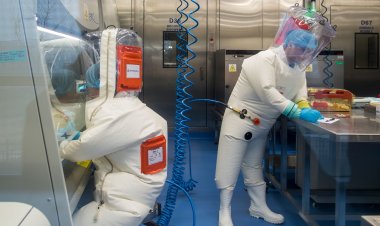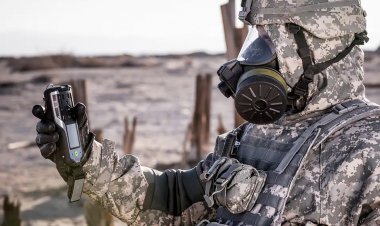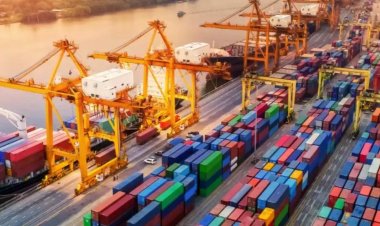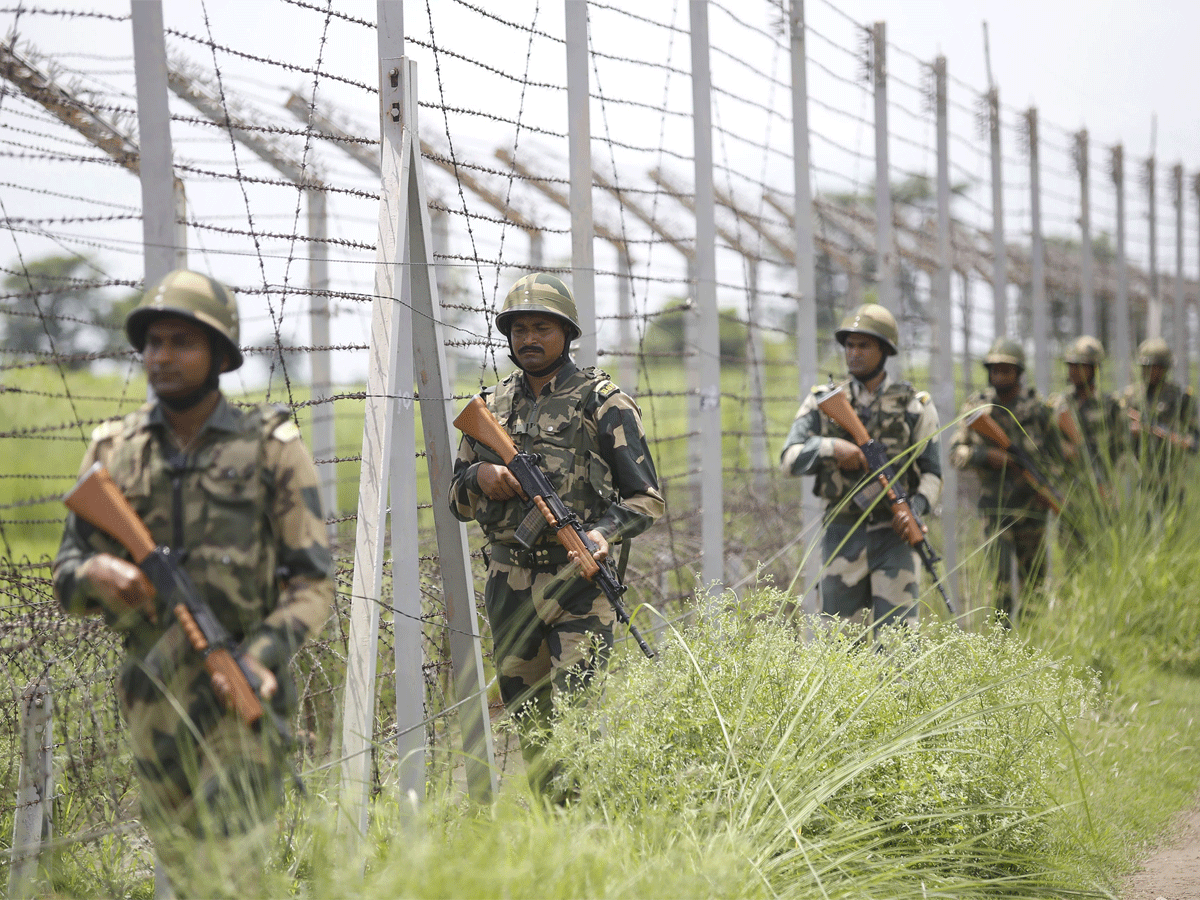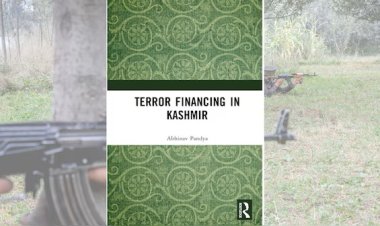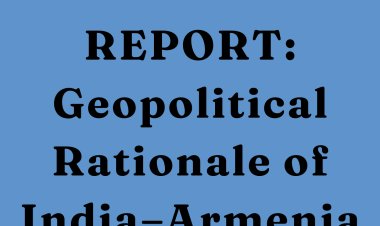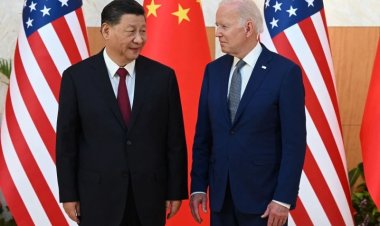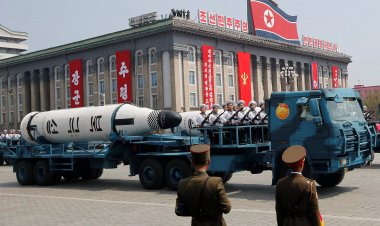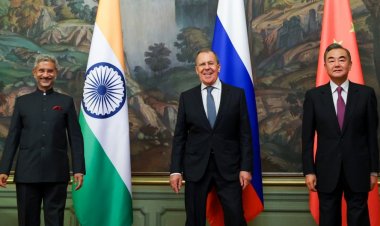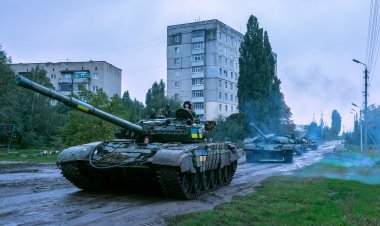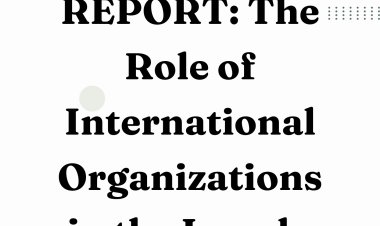A Case for National Health 'Security' Strategy
India needs to take a farsighted approach to deal with potential non-traditional security concerns. It must reconceptualize to understand the health security of its citizens as a key element of state security.

Commentary
By Abhilash Halappanavar
In Leviathan, John Hobbes famously described the state of nature as “solitary, poor, nasty, brutish and short.” He notes that all sovereigns are in this state with respect to one another, which the realist school of international relations has taken as their guiding principle in prescribing guidelines for state behavior in the international arena. In the aftermath of two world wars, states were mostly concerned with traditional security threats i.e. those threats which could disrupt a country’s territorial sovereignty. However, since the end of Cold War, security theorizing was expanded to include nontraditional threats—more broadly referred to as human security—such as economic security, food security, environmental security, health security, personal security, community security, political security etc. These threats are not considered to be ‘mainstream’ and the methods and tools employed to address them are still evolving.
The raging COVID19 pandemic has paralyzed our public health and health care systems, resulting in over two lakh deaths. It has revealed the deep pitfalls in our basic health infrastructure as citizens have to frantically search for hospital beds and ventilators, often to no avail. Statistics reveal that India lost seven times more doctors than soldiers in 2020, which attests to the fragility of our national health infrastructure. In contrast, our armed forces are well funded, decently equipped and arguably the most powerful in South Asia. For India, preventing extremist and terror-related activities in the mainland and bordering areas of the country has always been a priority. Understandably so, since India has had to face continental threats from two hostile neighbors on its Northern and Western borders. In the face of such threats, our armed forces have shown remarkable resilience and the threats have been resolutely dealt with and our territorial sovereignty has not been compromised. Yet, today as the situation stands—although traditional security concerns have not dissipated—non-traditional security threat in the form of a life threatening virus is proving to be a bigger challenge. This has necessitated redefining national security to prioritise human security—at least until this challenge rescinds.
A National Security Policy that caters to such public health emergencies, as well as an effective response mechanism to deal with the civilian effects of chemical, biological, radiological, and nuclear events is the need of the hour. National Security therefore, has to be supplemented by the concept of human security, prognosticated on how people are impacted by transnational challenges like health, environment, poverty, crime, to ensure a holistic approach to comprehensive national power. In other words, ensuring the protection of general masses and their wellbeing should be the focus of any national policy dealing with security.
Given the changes in the international security environment with strategic competition diversifying into domains like biological warfare, cyber warfare and other avenues, the onslaught of the COVID19 pandemic in India has made a compelling case why concentrating specifically on traditional state-centered national security threats is no longer a viable analytical standard. The fundamental goal of a national security program in India should be to protecting lives of common citizens.
Healthcare in India’s National Security Planning:
This requires a reconceptualizing to understand state security as health security of its citizens. This is because health security is intricately linked to economic wellbeing of a nation—if people of the country are unhealthy; they would become incapable of work and ergo, GDP would fall. If the national treasury is empty, the government of the day will not be fund the armed forces and their military apparatus. This makes them instantly vulnerable to security threats from other states as well as non-state actors, which could threaten territorial sovereignty. Seen from this prism, India’s military readiness is being challenged.
Since last year, in an attempt to deal with the pandemic, the government announced curfews and lockdowns. As a result, people were forced to stay inside homes and life came to a standstill, showing the power of this deadly attack. It was not a ‘terror’ attack that brought the healthcare system to its knees, but an unknown virus strain—a human security issue. This indicates healthcare today needs to be prioritized within the national security framework.
This should wake us up to other non-traditional threats such as climate change which has a huge potential to cause devastation similar (or worse) to a war. Contextual security issues like pandemics do not honor the internationally recognized norms of respect for national sovereignty. To what extent we are prepared for such events depends on how we define and respond to them in the present and prepare for the future.
Medical ventilators, oxygen manufacturing, and critical pharmaceutical products have become the center of discussion in the health anarchy that has gripped the country. We have not learned lessons from last years’ experience or prior national health emergencies. In the past we have seen governance response to any national disaster has been jeopardized by non-availability of essential supplies, including crucial medical supplies. In the process, critical time is lost before any meaningful damage control exercise can be launched, aggravating the damage and devastation it causes. In today’s era of scientific management, pandemic and health emergency cannot remain within the confines of such inefficiency anymore.
The Way Forward:
India needs to take a farsighted approach to deal with potential non-traditional security concerns. India is particularly vulnerable to the dangers of climate changes, and in recent years there has been a rise in natural disasters like floods, landslides etc. Previously the armed forces have played a critical role in mitigating such natural disasters. However, when it comes to a health disaster of such proportions—our armed forces remain underutilized. The Covid disaster has shown that the civil administration is not properly geared for immediate and effective response. In such disasters, discipline and efficiency is the first demand, which the armed forces are specifically trained for. Although the Indian armed forces have come forward during this health crisis, by bringing critical medical oxygen and building make shift hospitals, they can do more, especially since it has experts from fields such as engineering, infrastructure and logistics.
Given the pitfalls of India’s present system, an initiative to establish a national emergency stockpile of critical medicines is the need of the hour. This requires an innovative approach. It will be critical to enact national legislation that will create and fund a distinctive agency solely dedicated to maintaining the reserve—staffed by medical and public health professionals, implemented by the army.
The government of the day needs to develop statistical models to clearly define and demarcate “critical supplies” like medical equipment, as well as antibiotics, antidotes, antitoxins, vaccines, and other pharmaceuticals support systems like medical oxygen, ventilators, etc. for various scenarios. Special emphasis towards ensuring quality control of the stockpile and planning its budgetary requirements needs to be done specifically. The inventory if located and divided into different zones across the country will ensure better and fast access to the critical equipment to states at the time of need. Locations for storing these reserves can also be decided by “Critical Incident” mapping of India thereby identifying areas more susceptible to suffering from such emergencies.
Establishing and operating a “National Medical & Pharmaceutical Reserve” will be an essential component for India’s emergency preparedness. Though this concept needs detailed and meticulous planning as well as public-private partnerships, its establishment will be a landmark development in India’s ‘Atmanirbhar’ national security policy. Today, the way India was compelled to receive medical aid from Western, Middle-Eastern & Asia-Pacific countries to deal with the pandemic, affects its image of a ‘global leader.’ Covid-19 has highlighted the dreadful consequences of facing a crisis unprepared—and we must learn from, rather than repeat our mistakes going forward.
Abhilash Halappanavar is a Junior Fellow at Usanas Foundation. His area of interest is defence and technology.
Disclaimer: This paper is the author’s individual scholastic contribution and does not reflect the organisation’s viewpoint.

